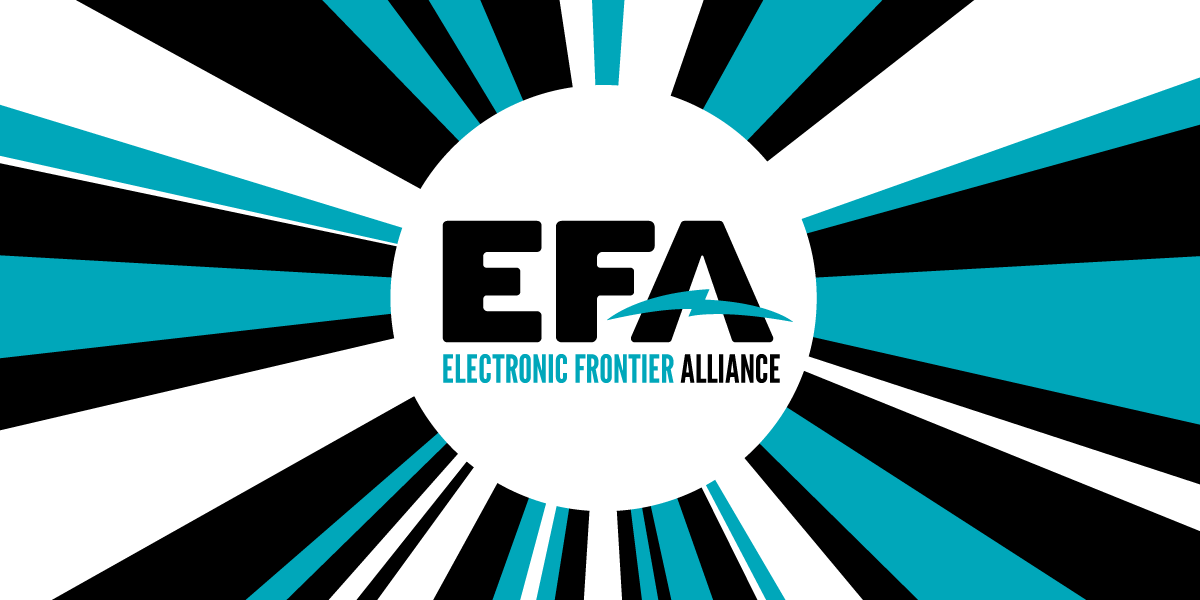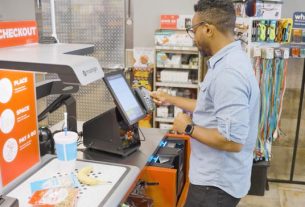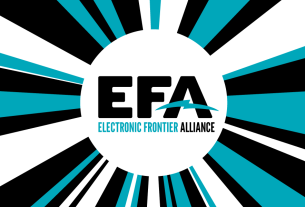We’re thrilled to share that the Electronic Frontier Alliance (EFA) has a fresh new look and a wealth of new resources for community organizers. EFF can’t be everywhere and in every fight, which is why back in 2016 we committed to building a network with grassroots organizations, and made the EFA a critical part of our work. Local organizers from within the community are better situated to build support and change in the long term. So when civil liberties and digital rights are under threat in your neck of the woods, we hope you find or become a local EFA member.
After eight very eventful years for local organizing, the EFA is going strong with over 70 active groups across the United States. To renew our support of the network, EFF revamped the look of the EFA and made a number of improvements to our online hub for all things EFA: https://efa.eff.org.
But the network is bigger than EFF. EFA is composed of its members, and relies on dedicated local advocates, educators, and hackers to help drive the work forward. If you’re part of a not-for-profit community group, we encourage you to apply.
What is the EFA?
The Electronic Frontier Alliance (EFA) is an information-sharing network of grassroots groups across the United States, administered by EFF’s team of organizers. All groups are totally independent—meaning no one is obliged to follow EFF’s lead to be supported. The result is a network with incredibly diverse beliefs, focuses, and tactics; from hacker spaces developing open-source software tools, to community ISPs, to student groups hosting surveillance self-defense workshops.
A few things do unify alliance members, though. All groups must be tied to a local community, meaning their work is based in a specific region or institution, with meaningful ways for other community members to get involved. Groups must also be not-for-profit; either unincorporated or registered as a non-profit. Finally, all member organizations publicly endorse EFA’s five core principles:
– Free expression: People should be able to speak their minds to whomever will listen.
– Security: Technology should be trustworthy and answer to its users.
– Privacy: Technology should allow private and anonymous speech, and let users set their own parameters about what to share with whom.
– Creativity: Technology should promote progress by allowing people to build on the ideas, creations, and inventions of others.
– Access to knowledge: Curiosity should be rewarded, not stifled.
How EFF supports EFA members
EFF is committed to building and strengthening the EFA network. EFF doesn’t bottleneck on-the-ground activists, or parachute into local communities with marching orders. Instead, we aim to build the network in autonomous and decentralized ways, helping build local power through base-building, and fostering more connections between aligned groups.
That’s not to say we stay on the sidelines: EFF’s organizers respond to requests from community groups with hands-on support. This includes helping to create an effective local campaign, host successful events, write a local op-ed, or tackle the administrative headaches faced by new and growing groups. We also lend EFF’s platform by promoting local work. In short, membership comes with an EFF support-line which, pending capacity, can help make local work more impactful.
EFF’s organizing team also brings groups together with a number of member-only convenings. Exclusive EFA videoconferences are hosted every month, with talks and workshops from digital rights and organizing experts, as well as an opportunity to brainstorm or workshop work with other organizers in the network. Organizers also regularly host in-person EFA meetups and socials, and will leverage EFF’s network to assist with local networking necessary for coalition work. EFF also hosts multiple socials and in-person EFA meetups exclusive to members across the country throughout the year.
As an added bonus, EFA groups also get discounts on EFF annual memberships, unlocking additional exclusive events, mailings, and member gifts.
New Look, Site, and Resources
Bringing a new look to the EFA site (and new swag) was the perfect excuse to also extend and update our resources for organizers.
Allies Directory

EFF staff meet an endless stream of people frustrated with constant infringements of our rights, especially when these intrusions start hitting us at home. There are sometimes clear ways to take action when congress or big tech are making bad decisions. But what about when it’s in your own backyard?
That’s where the EFA allies directory (https://efa.eff.org/allies) comes in. Finding a local group can turn that pent up frustration into action. Even if your nearest group has a different focus, they’ll be like-minded digital right defenders familiar with other local resources and organizations. Our site offers an easy way to filter by state, and get a quick introduction to each group and how to best contact them.
Organizer Toolkits
![]()
While EFF’s organizing team is always eager to help groups grow, many groups run into the same hurdles. That’s why we’ve prepared several organizer toolkits with evergreen advice for starting and growing a group. These include:
- Organizing events: Every event, from a regular meeting to hosting a conference, requires clear planning and many logistical considerations.
- Social media advocacy: It can be challenging to make an impact online, but with some consistency and helpful tips it can be an effective tool for rallying support.
- Building coalitions with sign-on letters: Approaching decision-makers with a host of groups supporting or opposing a policy in a sign-on letter is a powerful advocacy tool. If approached carefully, it can also serve as a starting point for continued coalition work and support across issues.
- Traditional media tips: Talking to a reporter about your work can be stressful, but with the right preparation it helps spread your message and raise your group’s prestige.
- Student organizing: Students have to navigate a lot of unique and difficult dynamics starting a group, maintaining a group, and even protesting on campus.
- Community agreements: Local groups benefit from consensus, from event expectations to community guidelines, making it clear what behavior is encouraged and what is off-limits. This helps groups grow and keep everyone safe.
These toolkits are designed to be easily printed and shared, and are available at launch in both English and Spanish.
Building a Movement Together
The relaunch of the EFA is not just a cosmetic change; it represents our renewed commitment to supporting grassroots digital rights advocacy. The strength of the EFA network lies in its diversity and the dedication of its members. In an era where civil liberties and digital rights are under constant threat, a coordinated and well-supported grassroots movement is essential for addressing the digital rights challenges of today, and tomorrow.
So EFF calls on you to get involved. Find a local group, discuss joining the EFA with your group, or even get some friends together to start a new group. We need people from all walks of life, with a range of experience and expertise, to be a part of the work which will shape the future.
For more information on how the EFA works and to join the fight, please check out our FAQ page or reach out to EFF’s organizing team at organizing[at]eff.org. Join us in building a future where digital rights are upheld and respected.



